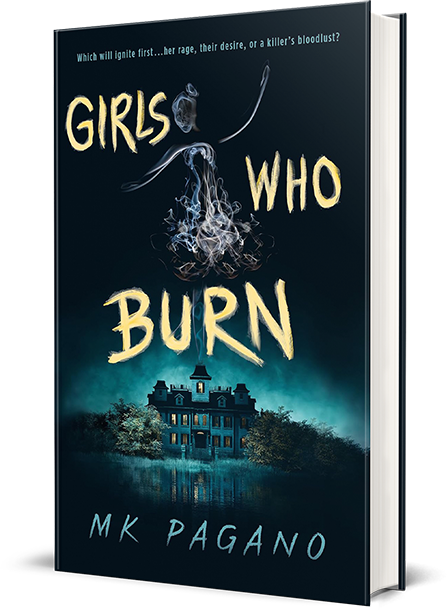On Playing the Long (Writing) Game

Once upon a time there was a young girl named Mary Kate who dreamed about being a writer…
It took her some time, but once she actually started writing (instead of just reading books about writing) and committed herself to writing a book, she was pleasantly surprised to find the words flowing, and pretty well, if she did say so herself.
She had her struggles as a writer, but she did the most important thing a writer can do: she didn’t give up. She worked and worked and worked and worked and five years after she started, finished the (then) final draft of her first novel and prepared it to send out to agents.
She had read the statistics about aspiring novelists, about the challenges of getting published and how hard it is to make a living off just writing novels, but she was a little young, a little arrogant, and extremely idealistic, and so she decided these stats would not apply to her. She would be one of the lucky ones (except not “lucky” because “lucky” implies an element of chance, and she would be getting there on talent) in which she’d find success with her first book. Because she was a good writer.
She queried the top agents at the top agencies. They didn’t get back to her.
She queried some other agents, more medium-sized ones. Some got back to her. Some did not. Some requested partials. Nothing panned out.
She queried new agents at tiny agencies. They at least all got back to her. They told her she was a good writer, but that they “didn’t connect to the story”, or “didn’t love the voice,” or simply “this project is not for me.”
She didn’t understand. But again, she did the important thing: she didn’t stop writing.
At the time, she had been in the middle of writing a sequel to that first novel. It was painful, but she put that sequel aside. You can’t sell a sequel to something that didn’t sell in the first place.
She wrote something new. In a different voice, different POV, and different genre. She decided not to edit it ad nauseam as she wrote, and just let the first draft out before trying to fix it. It came with its own share of struggles, but to her surprise, she finished the first draft of this novel in six months.
Then she took the advice she had ignored before, and set it aside before trying to edit it.
She attempted to edit her first novel (again). She partially drafted something else.
She then returned to her second novel and edited it. To her surprise, it was much easier to edit after taking a break.
When she was done with that round of editing, she found critique partners who were not her friends and family (which she had eschewed before as unnecessary for her). She compiled their advice over time, and re-edited, killing several darlings (also advice she had eschewed in the past).
Was it better this time around? Yes. Was it as good as it could be? No.
She set it aside again and worked on something else. She returned again, and edited it for the fourth time.
She set it aside again, and took the longest break from it this time, writing a (near-complete) first draft of something else.
That second novel is still cooling off. I (plot twist: the writer in this story is me) plan on returning to it after the draft of my third novel is finished. I have different critique partners looking at it this time around, and I also entered it in #PitchWars, so please wish me luck with that. Once all that stuff has happened, I’ll edit it again, and maybe at this point, maybe, it’ll be ready for submission to agents.
What’s my point?
That writing novels isn’t about racing through the writing to immediately produce a bestseller and live happily ever after.
It’s about doing the best you can with what you have, learning as you go, and most importantly of all, not giving up.
Writing takes persistence. It takes patience. And it takes time.
I know now that the first novel I wrote will not likely launch me into bestseller-dom. That novel, if I can’t figure out how to fix it, may never even see the light of a publishing house. But you know what? That’s okay.
I’m playing the long game. I want a career, not just one bestseller. So when the first thing I wrote didn’t pan out, I wrote something else. Then I wrote something else. When I’m done with this latest draft, guess what? I’ll write yet another thing.
Is it frustrating watching other writers have success, some of them in their early twenties, some of them on their first novels, while I sit here quietly working away for years on end? Of course.
Is it maddening to have people constantly ask me “what’s going on with your book?” Endlessly. Do I bite their heads off? No. They’re well-meaning friends and family. But you have to keep in mind that well-meaning as they may be, these are people who have never written a novel and have no idea how hard it is. NO IDEA. They also have no clue how the editing process works, how the publishing world works, or really anything else about it for that matter.
“Well if it hasn’t paid off by now, aren’t you ready to give up?” is another question I’ve heard. (That question does tempt me to bite heads off.)
My answer: HELL NO.
I’m not in a rush. I’m a writer, and I’m in it for the long haul.
Comparison kills happiness. As does living by the expectations of others rather than yourself. But most importantly of all:
I didn’t become a writer for the money or success. I did it because I love it. And I will continue doing it regardless of whether or not I ever become successful. Because I have something that I love to do, and for me, that’s justification in and of itself to keep doing it.
And so if you’re like me, if you’ve been languishing quietly behind your keyboard for more time than you’d care to admit, I want to encourage you to write on, dear writer, because in the words of the immortal Bruce Springsteen (I am a Jersey girl, after all):
No defeat, baby, no surrender.
Photo by Saad Chaudhry on Unsplash


What advice would you give someone who has zero writing experience but wants to start?
Take classes? Or just run with it?
Yes to writing classes! I took a writing class back in 2008 when I was first starting to get back into writing again and it was one of the best things I did. Brushing up on skills while interacting with like-minded people who were at similar levels as me was really the key to kickstart my writing again. I’d recommend one that’s not too crazy–meaning non-MFA level–to start. If you’re able to make it up to the city, I really like Gotham Writer’s Workshop. Great teachers and it’s where I met my first writer friends.
There are also some great books you can read, Stephen King’s “On Writing” being the best of the ones I’ve found. (It’s also super entertaining.)
Other than that, read well-written books, and just write, write, write as much as you can. It’s really a learn-as-you-go skill.
Persistence is always the key to success. More so for us poor writers.
Hi Mary Kate – I followed through from Writer Unboxed. Good for you! Your journey sounds a lot like mine, actually. Have you considered the WU UnConference? It’s a small conference, and it’s utterly dedicated to craft. If I do say, I think for someone at your level (so close!), it’s the perfect way to boost an oh-so-nearly finished project to the next level. Just a thought.
In any case, terrific post. Keep it up, and best of luck! Thanks for your comments over at WU.
Thanks for stopping by! I haven’t heard of that, but it does sound cool. I have yet to attend a writer’s conference, as the thought of being alone in a crowd of people, even all writers, kind of scares an introvert like me to death, but I will definitely look into it
[…] (I read somewhere that George R.R. Martin works like me; he works on a character’s storyline until it gets stale, then switches to someone else, and so on and so forth. Perhaps this is the reason why both George R.R. Martin and I are famous for taking a long time to get things done. I’m fine with that, by the way; I’m well aware that I’m in this for the long haul.) […]
[…] The biggest takeaway from this? Producing something good enough to garner the interest of an agent takes TIME. I’m sure there are exceptions out there, but most people I know were writing for years and had queried a failed project (or two, or five) before they wrote something that got them representation. If you’re looking to become a traditionally published writer, I firmly believe you have to play the long game. […]
[…] I’m doing it. Because it’s what I have to do. I’m playing the long game. And call me hopelessly optimistic, but I still believe it will pay off at this […]